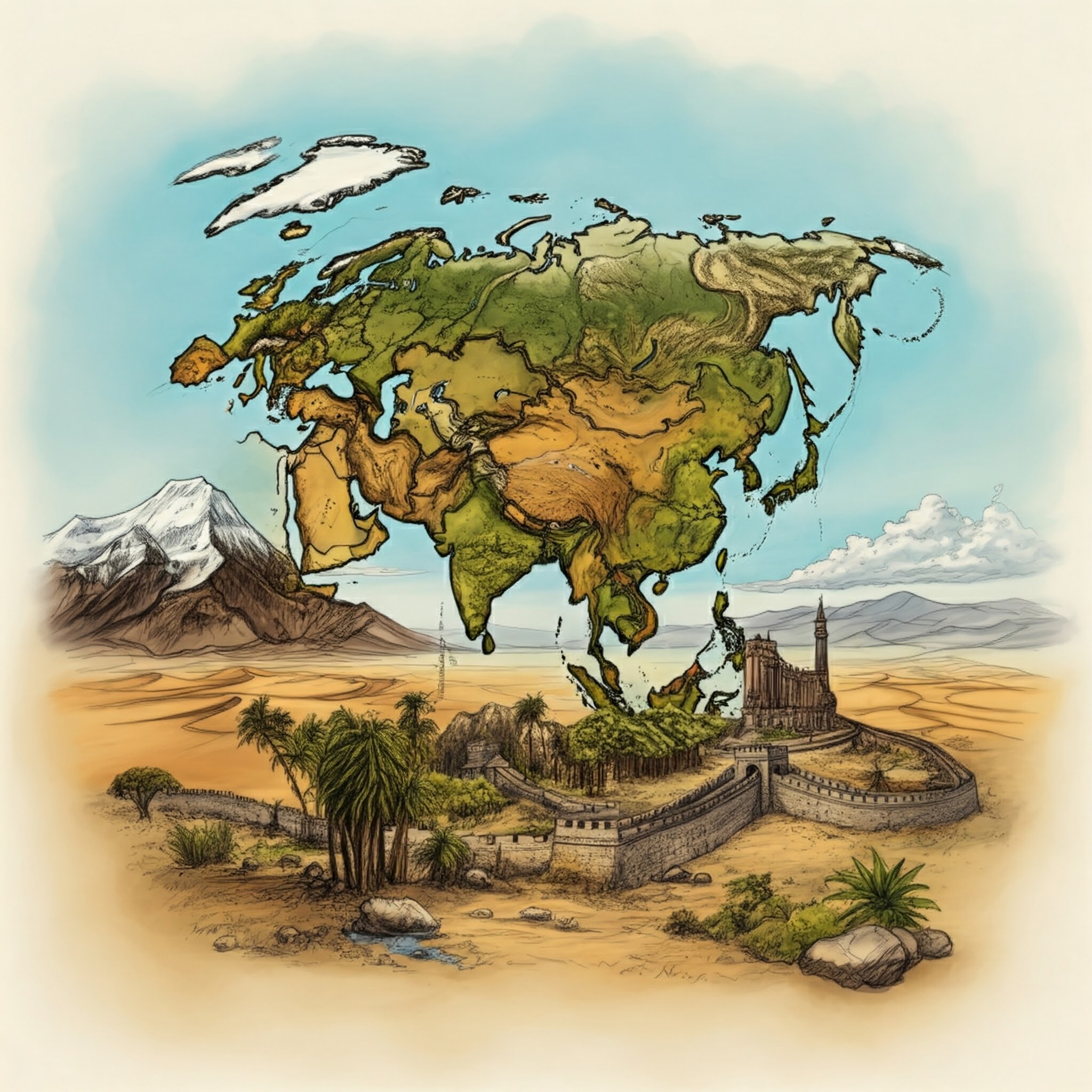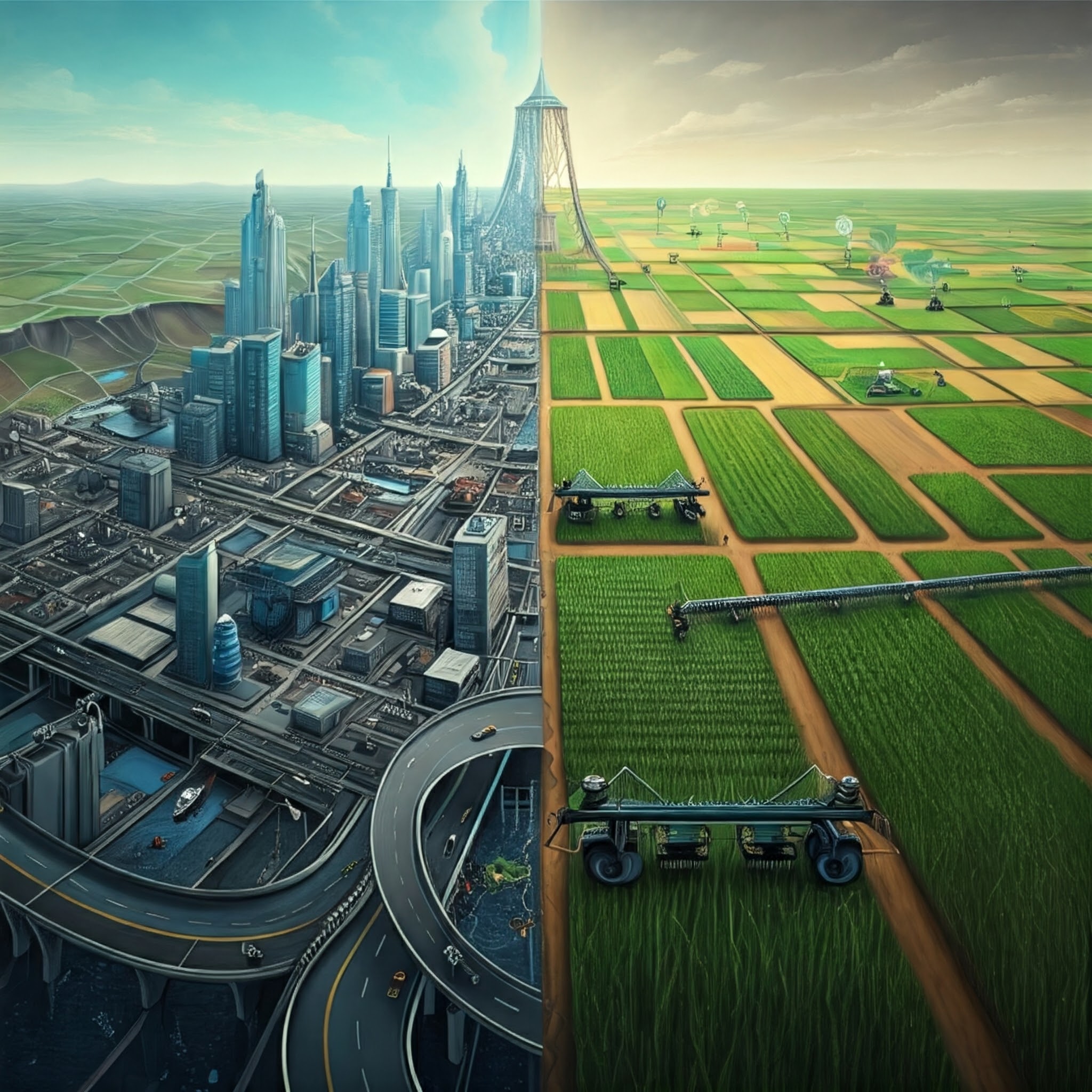Geography
Definition
Geography is the scientific study of the Earth's physical features, environment, and human activities as they interact and are distributed across the planet. It encompasses both natural and human-made phenomena.
Parts of Speech
- Noun
Pronunciation
American English
- IPA Pronunciation: /dʒiˈɑːɡrəfi/
- Respelling: jee-AH-gruh-fee
British English
- IPA Pronunciation: /dʒiˈɒɡrəfi/
- Respelling: jee-OH-gruh-fee
Etymology
The word "geography" originates from the Greek "geographia," meaning "description of the Earth," derived from "geo-" (Earth) and "graphia" (writing or description). It entered Middle English through Latin and retained its focus on studying Earth's features and human interactions.
Derivatives
- Geographical (adjective)
- Geographer (noun)
- Geographically (adverb)
- Geomorphology (noun)
- Geopolitics (noun)
Synonyms
- Cartography
- Topography
- Earth science
Antonyms
- None
Usage
The term "geography" is used in academic, environmental, and practical contexts. For example, "She studied geography to understand climate patterns," or "The geography of the region includes mountains and rivers."
Related Terms
- Cartography: The art and science of map-making.
- Geomorphology: The study of Earth's landforms and the processes shaping them.
- Climatology: The study of climate and weather patterns.
Detailed Definitions
Noun
- The study of Earth's physical features and environment: Encompasses mountains, rivers, climates, and ecosystems.
- Example: "The course covers the geography of Asia, focusing on natural landmarks."
- The study of human-environment interaction: Examines how humans affect and are affected by the environment.
- Example: "Geography explores urban development and agricultural patterns."
- The physical characteristics of a specific area: Refers to the terrain, features, and layout of a location.
- Example: "The geography of the island includes lush forests and volcanic formations."
geography



🇨🇳 Mandarin Chinese
- 地理
- IPA: /ti˥˥ li˧˥/
- English Respell: dìlǐ
🇮🇳 Hindi
- भूगोल
- IPA: /bʱuːɡoːl/
- English Respell: bhugol
🇪🇸 Spanish
- Geografía
- IPA: /xeoɾaˈfi.a/
- English Respell: geografia
🇫🇷 French
- Géographie
- IPA: /ʒe.o.ɡʁa.fi/
- English Respell: geographie
🇦🇪 Arabic (Modern Standard)
- جغرافيا
- IPA: /d͡ʒoɡ.ɾaː.fjaː/
- English Respell: joghrafiya
🇧🇩 Bengali
- ভূগোল
- IPA: /bʱugol/
- English Respell: bhugol
🇷🇺 Russian
- География
- IPA: /ɡʲɪɐˈɡrafʲɪjə/
- English Respell: geografiya
🇵🇹 Portuguese
- Geografia
- IPA: /ʒɨuɣɾɐˈfiɐ/
- English Respell: geografia
🇮🇩 Indonesian
- Geografi
- IPA: /geoɡrafi/
- English Respell: geografi
🇩🇪 German
- Geographie
- IPA: /ɡeoˈɡʁaːfiː/
- English Respell: geographie
🇯🇵 Japanese
- 地理
- IPA: /t͡ɕiɾi/
- English Respell: chiri
🇻🇳 Vietnamese
- Địa lý
- IPA: /ɗiə˨˩ li˧˧/
- English Respell: địa lý
🇰🇷 Korean
- 지리
- IPA: /t͡ɕi.ɾi/
- English Respell: jiri
🇹🇷 Turkish
- Coğrafya
- IPA: /d͡ʒoɰˈɾafja/
- English Respell: cografiya
🇵🇰 Urdu
- جغرافیہ
- IPA: /d͡ʒʊɡrɑːfiːɑː/
- English Respell: jugrafia





